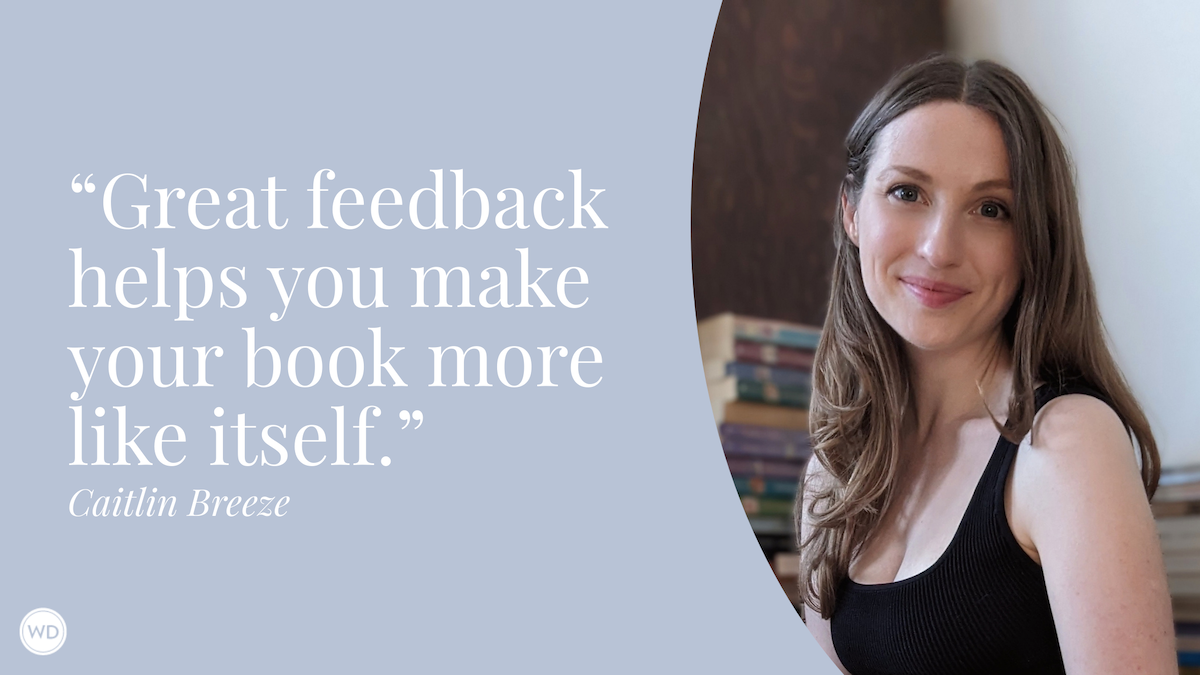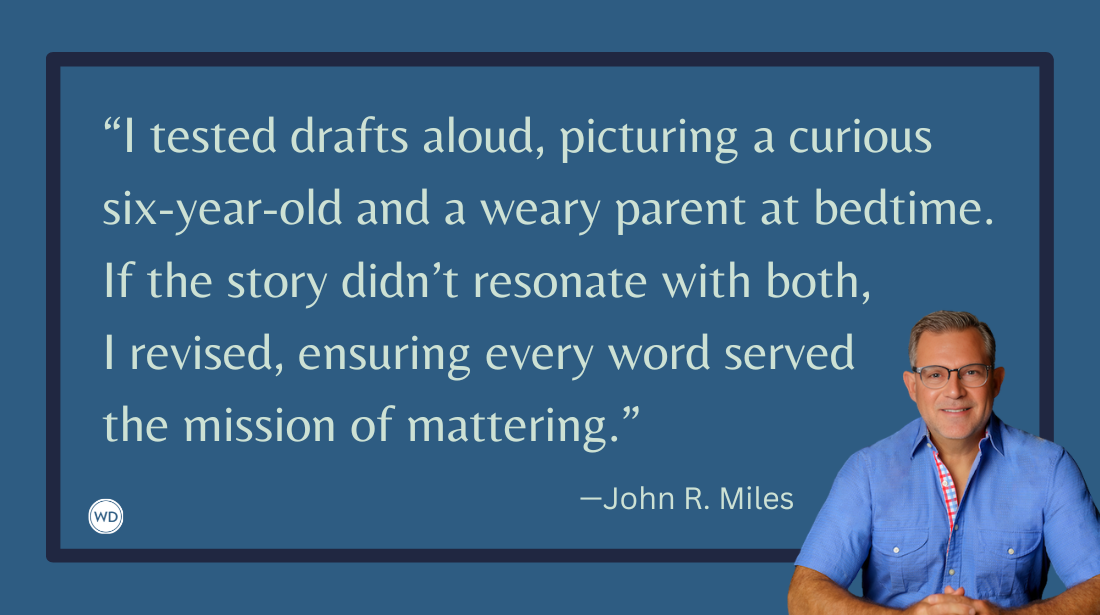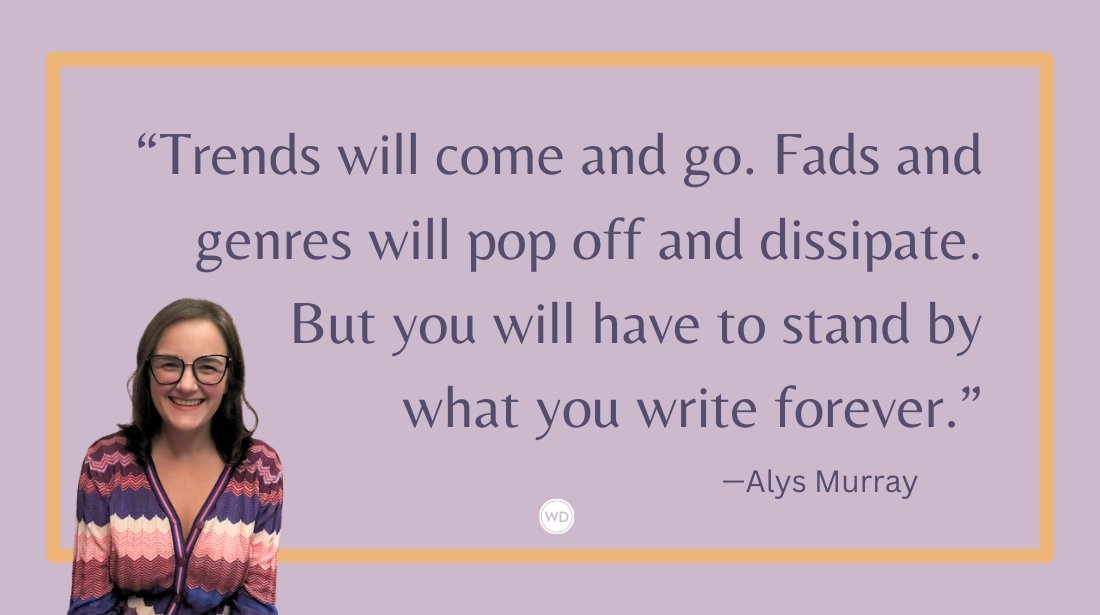Indie Author Spotlight: David Viergutz
Indie horror writer David Viergutz shares his perspective on the flexibility and speed of the indie publishing world.
[This interview first appeared in the May/June 2025 issue of Writer's Digest.]
Books: “Scaremail” Insanitorium, Not Okay, and 20+ more
Genre: Horror
Podcast: The Nightmare Engine, LLC
Writes from: Just outside of Austin, Texas.
Why self-publish?
I’m an entrepreneur at heart, and I need flexibility with the ability to move quickly in the market. Self-publishing and traditional publishing both allow entry into the market but at different speeds, and I like to move quickly.
Had you considered traditional publishing?
Absolutely, but from a different angle. I love the idea of partnerships and businesses working together to bring new, innovative products to the market, whether they be books or “Scaremail” or other entertainment for readers.
I wanted to show a traditional publisher a track record of sales and what I bring the table as a partner. This mitigates a lot of the unknowns for the publisher and is something I would want to see if I were looking at a deal from their perspective.
If I were approached today, I would be able to show a traditional publisher that my stories are good not just by the content but by the numbers too. I would be able to show a vibrant community of readers I’ve cultivated over the years and a brand that I’ve built around my stories that is ready to expand. Independent publishing allowed me to build this first and make myself open to a partnership with a traditional publisher.
I don’t believe there is a right or wrong way to publish—it’s whatever fits you best and helps you get your stories into the hands of readers.
Indie publishing appeal:
The flexibility and innovation. Independents can quickly test, launch, release, pivot, and otherwise adjust their businesses on the fly, capitalize on trends, build an audience from nothing, and truly craft a business from an idea—all before launch.
Biggest challenge?
With all the perks I mentioned, their opposite exists. Traditional publishing has its mainstays, its go-tos, while independents must be somewhat malleable to what readers want. Often, this means the speed at which books are published. A lot of indies get caught up in having to write at a breakneck, which can feel a bit unenjoyable at times. I was like this for a long time until I learned to pivot.
Wish I’d known …
I wish I’d taken a break after the first one and really looked at it at my dining room table and said, “Wow, I did that. I wrote a book.” I have a bad habit of never feeling too content or proud with what I’ve done and instead, just felt a moderate level of relief that it is done—and on to the next thing I go.
Publishing advice:
Authorship falls into a weird sphere of the entertainment industry. Sure, we can look to other authors who are doing well, study their books, investigate their tactics, and try to adopt them ourselves. Or you can look at what other industries are doing and see those as opportunities other authors haven’t explored.
When looking for business strategy, I look outside the authorsphere.
Marketing strategy:
Primarily paid ads. I also look for opportunities to humanize myself to readers and build a deeper connection with them. I host “The Nightmare Engine Podcast” where I bring on another horror author and we talk about anything but marketing and craft. We talk about what readers find interesting. It helps them relate to me and keeps me top of mind for when something new comes their way.
Don’t skimp on …
Your website. A lot of authors will say covers and editing and formatting etc., but I believe that if you truly want to stand out as a professional in the industry and to readers, your website needs to do more than list your books with a few links. You should be ready to answer every question a reader might have about why they should buy your books, not just how.
Website: DavidViergutz.com
About Amy Jones
Amy Jones is the Editor-in-Chief of Writer’s Digest and was the managing content director for WD Books. She is the editor of the Novel and Short Story Writer's Market and Children's Writer's and Illustrator's Market. Prior to joining the WD team, Amy was the managing editor for North Light Books and IMPACT Books. Like most WD staffers, Amy is a voracious reader and has a particular interest in literary fiction, historical fiction, steamy romance, and page-turning mysteries. When she’s not reading, Amy can be found daydreaming about Italy or volunteering at her local no-kill cat shelter. Find Amy on Twitter @AmyMJones_5.








